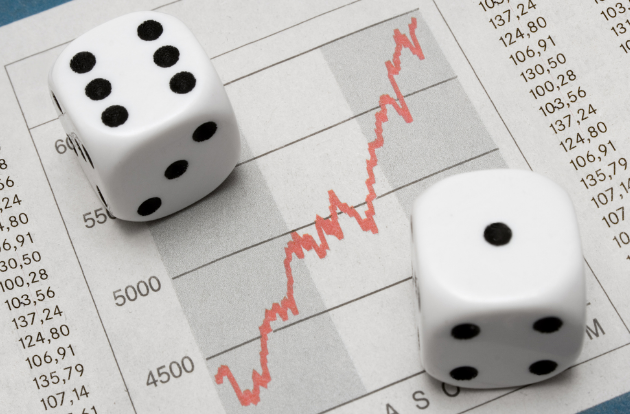Many of the people getting involved in cryptocurrency trading and investing understand that cryptocurrency is still in a speculative phase. Cryptocurrencies have garnered massive attention in media reports because of the outsized gains they had delivered relative to traditional assets. However, during the inevitable bearish downturns, many traders and investors often record heartbreaking losses because of how quick the prices of cryptocurrencies could fall.
An objective appraisal of the strategy of many of the people investing in cryptocurrency suggests that they buy the cryptocurrency with the loudest buzz and then hope for the best. Interestingly, the strategy of many traders is not particularly better – many traders spend their day watching news reports in order to distill sentiment about where their crypto-asset is heading.
Without much ado, technical analysis, market sentiment, social media buzz, and crowd wisdom are some of the informational sources that you can leverage to make smart cryptocurrency trading decisions. However, you can’t afford to ignore the importance of time-tested technical analysis to getting insight on market trend.
Problems affecting the trading of cryptocurrencies
Firstly, cryptocurrency assets are new and they have lots of fundamental difference in relation other assets on Wall Street. Hence, the analytic tools available for managing Wall Street investments are practically useless for cryptocurrency.
Secondly, cryptocurrency is in relative infancy and there’s a shortage of data on financial metrics to help in the analysis of a cryptocurrency. Even when such data is available, the data is usually not comprehensive enough for retail investors to make a detailed analysis.
The lack of historical data, market monitoring, and objective market analysis means that there’s a very thin line between investing and gambling with cryptocurrencies. Unfortunately, many cryptocurrency enthusiasts end up on the gambling side more time than they care to admit because they are making trading/investment decisions based on their gut.
Thirdly, the decentralized nature of cryptocurrency markets poses some latent risk to traders and investors because of lack of regulatory oversight. Hence, intentional unethical activities and unintentional mistakes can cause traders to lose huge amounts of money. Unfortunately, when cryptocurrencies enter a free fall there’s traders would have lost substantial amount of money before they hear the news and only few traders with limit/stop loss orders are able to survive the onslaught.
Here’s how you can improve the odds of your trading success
Signal, a blockchain company is working on a solution that cryptocurrency traders and investors can leverage to increase the odds of their trading success. The company is working on a solution that empowers cryptocurrency traders for success by utilizing trading algorithms built on instructive data analysis in a format that all traders will find user friendly. Traders can take their financial analysis expertise, merge it distilled wisdom of the crown from sentiment analysts and trend spotting to formulate a trading strategy.
Financial analysts are starting to create new trading strategies that take into consideration the peculiarities inherent in cryptocurrency trading and data scientists are now watching out for how trends and patterns can influence the outlook of cryptocurrencies. Merging data science and algorithmically controlled trading can turn trading into a pure numbers game in which human emotive weaknesses have little impact on trading decisions.
Interestingly, you don’t need to have prior knowledge of coding before you can create a trading strategy because Signal allows you to take elements of technical indicators and deep learning to build an algorithm-backed trading model. The best part is that you can to confirm that your model will work and make you money by backtesting its effectiveness against historical data.
Computational algorithms act based on predetermined instructions; hence, they can eliminate sentiments and human emotional bias from trading decisions in order to provide cryptocurrency traders with the decisional strength to stick to a trading plan even when they are tempted to be greedy or fearful.
Computers algorithms are incredibly faster than human beings are in analyzing data and executing trading actions once pre-determined conditions are met. Cryptocurrency trading is still somewhat speculative and the trading environment is highly volatile. Computer algorithms can help retail traders to speed up the process between analysis, entry, and exit in order to level the playground for both institutional investors and individual traders.
Final words…
Algorithms have become a regular part of trading on Wall Street and a large number of trading activities are initiated or managed by algorithms. In 2017, Marko Kolanovik, an analyst at JPMorgan estimated that only about 10% of Wall Street traders are “fundamental discretionary traders” because “big data strategies are increasingly challenging traditional fundamental investing and will be a catalyst for changes in the years to come.”
The fact that algorithms have become an acceptable standard on Wall Street suggests that it is only a matter of time before algorithms take over the cryptocurrency market. Interestingly, we can reasonably expect a substantial inflow of funds from traditional Wall Street investors into cryptocurrency if Signal succeeds in its plan to make it easy for data scientists and financial analysts to collaborate on building adaptive algotrading models for cryptocurrencies.




